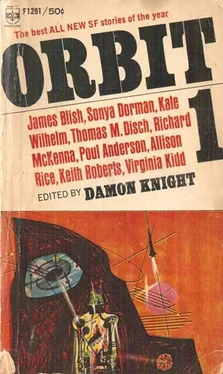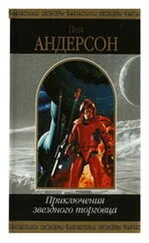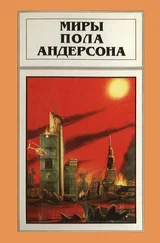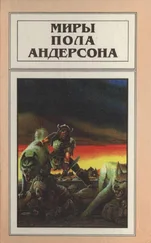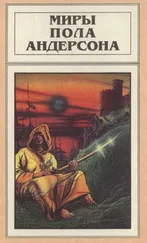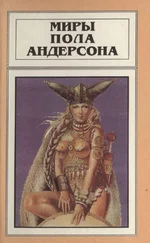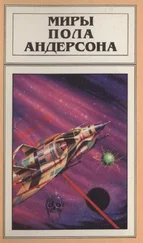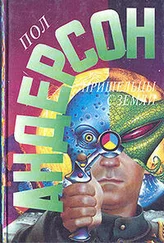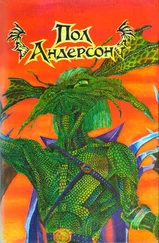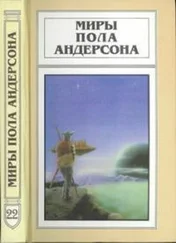Пол Андерсон - Orbit 1
Здесь есть возможность читать онлайн «Пол Андерсон - Orbit 1» весь текст электронной книги совершенно бесплатно (целиком полную версию без сокращений). В некоторых случаях можно слушать аудио, скачать через торрент в формате fb2 и присутствует краткое содержание. Год выпуска: 1966, Жанр: Фантастика и фэнтези, на английском языке. Описание произведения, (предисловие) а так же отзывы посетителей доступны на портале библиотеки ЛибКат.
- Название:Orbit 1
- Автор:
- Жанр:
- Год:1966
- ISBN:нет данных
- Рейтинг книги:4 / 5. Голосов: 1
-
Избранное:Добавить в избранное
- Отзывы:
-
Ваша оценка:
- 80
- 1
- 2
- 3
- 4
- 5
Orbit 1: краткое содержание, описание и аннотация
Предлагаем к чтению аннотацию, описание, краткое содержание или предисловие (зависит от того, что написал сам автор книги «Orbit 1»). Если вы не нашли необходимую информацию о книге — напишите в комментариях, мы постараемся отыскать её.
Orbit 1 — читать онлайн бесплатно полную книгу (весь текст) целиком
Ниже представлен текст книги, разбитый по страницам. Система сохранения места последней прочитанной страницы, позволяет с удобством читать онлайн бесплатно книгу «Orbit 1», без необходимости каждый раз заново искать на чём Вы остановились. Поставьте закладку, и сможете в любой момент перейти на страницу, на которой закончили чтение.
Интервал:
Закладка:
That I shall say good night till it be morrow,
Love,
Nyctimene
Ursa, the housekeeper he had inherited from his parents with the house itself and the surrounding acreage, knew already without having read the letter that Nyctimene had left him. Ursa had never approved of Nyctimene as his mistress; she approved of her still less as his fiancée. Ursa said nothing about it. Remorselessly she prepared the buffet for that evening’s guests and brooded over his salads, canapés and sliced meats like the presiding harpy of the feast.
Standing in the dining room where the appetizers, salads and sauces were spread on the great mahogany table amid the plunder of his mother’s cupboard — the gilt-edged china, the heavy silver, the crystal — he stared out the French windows at the bleak, moonlit autumn hills that lay beyond his watered lawn. The neighboring farmers had complained when he had let his fields go fallow and used them as a bird refuge. It was as though they had sensed that it would bring them together.
November. The remorseless mechanism of the sun ticked off its seasons. Life fled to the south, or slept, or buried its seeds and died. Generation succeeded generation, but he had always stood outside the cycles of recurrence and renewal. But now. .?
He could not bear, a second time, to see that basket and its five, small, precious eggs. Would the hatched fledglings be in her image? Or would they be like the pupae of a butterfly? Could he love the caterpillar if it would become in time another Nyctimene?
Nyctimene had known, or trusted, that he could. She had come to him from the privacy of her observations (knowing already the language he spoke, the customs of his people, even the books he had read), trusting herself to him alone of all the people in the world, just as birds would confide their presence to the eaves of his house. It was because these alien byways of evolution were his habitat, because he was not the usual dry-as-dust birdwatcher, not an ornithologist.
If science were a coral reef of small minds snuggled into cells of specialization, then he was a diver exploring the reef, who had stayed, bemused, in a single cavern. In these depths, in the grotto of ornithology, he had lost all sense of self, even of humanness. So that really it was not she who had come to him — but he who had come to her — there, in the grotto.
The first guest to arrive was the Rev. Mr. Compson, who, despite the stern judgment of the town, had agreed to give his belated sanction to his union with Nyctimene, not for his sake of course, but because Compson had been a friend of his parents.
“And the lucky little lady?” Compson asked, entering the parlor. “Where is she?”
“Vanished,” he explained, dawdling over his second Scotch. “To the south perhaps, since it is November.”
“Pity,” the minister replied, which was the nearest he would come to finding suitably consoling words.
Outside the moon had sunk from the sky, and clouds were gathering to obscure the stars, as their riddle would forever be obscure to him. She had never said whether one of them had been her home, or which, or why she had left, or how. And he had never asked such questions.
It had been just such an evening as this, moonless, that he had met her in September. For two nights he had gone about in search of the great horned owl, Bubo virginianus, but he had found only its spoor of prey, shreds of rabbit fur, a chicken’s stalkless head. He went to the hill-topping giant oak a mile away, because of trees it alone had commensurate stature to the owl. She had been there, Nyctimene, waiting for him. She greeted him familiarly, with even a hint of impatience — as though he had been late. There was no pretense of coincidence. They did not sight Bubo virginianus that night, and Nyctimene went home with him.
Mrs. Shreve with her husband was the next to arrive. Shreve was his publisher. Mrs. Shreve received the news of Nyctimene’s desertion politely, as she might have received news of a friend’s bankruptcy, with an invitation to dinner, with the understanding that as long as the friend’s evening clothes and composure were intact the invitation stood. Mrs. Shreve had brought along galleys of his latest book, and they talked business and drank, and more guests arrived and somehow he welcomed them all and told them his news. Everyone drank too many cocktails, except the Rev. Mr. Compson, who left before dinner.
The buffet was a dreary affair. The guests ate without enthusiasm, because courtesy required it. Their host ate because he was their host. He nibbled at a Caesar salad, crunching the burnt, garlic-flavored croutons in his teeth… and remembered…
Nyctimene, tearing at her food unrestrainedly, laughing. He suspected that the few minutes that she allowed her steaks to warm under the broiler were only a concession to his sensibilities. Or perhaps it was more like living flesh when it was warmed.
What had she said to him a few nights ago? It was in Latin: Modicum et non videbitis me; et iterum modicum, et vos videbitis me. A little while and you shall not see me; and again a little while and you shall see me. She had pronounced the Latin words with the same easy grace with which she spoke his English. Had she made other visits, centuries before? To Ovid perhaps, whom she so loved to quote, from whom she had borrowed her name. He became dizzy, drunk not so much with alcohol as with remembering and grief.
He set down his plate of salad and excused himself to his guests. He went up the stairs to her room. The blinds were drawn and the curtains pinned shut, as she had left them. Like her Ovidean namesake, the woman metamorphosed to owl, she detested the daylight. The musk of her body still perfumed the close air. He could imagine her hand reaching out in the dark to surprise him. He sat down and let the feather bed billow over him, let the reins of memory drop. He remembered. .
Her hands first: their soft white down barely perceptible to his lips; the nervous clench of the fingers about his arms; the narrow tapered nails that had more than once cut through his skin. Then, her subtly alien mouth, the large brown discs of her whiteless eyes, her hair that hung in Botticellian ropes midway down her chest.
He had never thought to ask her whether they were breasts in the mammalian sense. For in other, crucial ways she was not mammalian.
The eggs. What would he feed the fledglings when they hatched? Worms in milk, and to wean them, baby mice? Fortunately for the children, he was not rigidly anthropocentric. Not that he preferred Alienness for its own sake. There was a good deal to be said for Earth, as even Nyctimene had been ready to admit:
“Your science and its little stories are very good, and you did it all so fast — in one century, two centuries, no time at all. With all your machines and with numbers for the days, for the people, and for all the buying and buying you must do, you have all become scientists. I can’t count to one hundred.”
He had protested. Science was not just machines and numbers. But she would not be convinced.
“I read in a newspaper the most complicated description of the atom bomb. You bring one piece of it together with another piece” (she kissed him in demonstration of this principle), “and matter becomes energy. It was very closely reasoned and, as you say, causal.” She laughed. “Marvelous. Someday I shall study science.”
“Don’t you have science where. . where you come from?”
“I have a scientist. That is quite enough.” When he questioned she would not say any more, but at other times she would volunteer the most extraordinary facts, pretending afterward that it had been a joke.
Читать дальшеИнтервал:
Закладка:
Похожие книги на «Orbit 1»
Представляем Вашему вниманию похожие книги на «Orbit 1» списком для выбора. Мы отобрали схожую по названию и смыслу литературу в надежде предоставить читателям больше вариантов отыскать новые, интересные, ещё непрочитанные произведения.
Обсуждение, отзывы о книге «Orbit 1» и просто собственные мнения читателей. Оставьте ваши комментарии, напишите, что Вы думаете о произведении, его смысле или главных героях. Укажите что конкретно понравилось, а что нет, и почему Вы так считаете.
